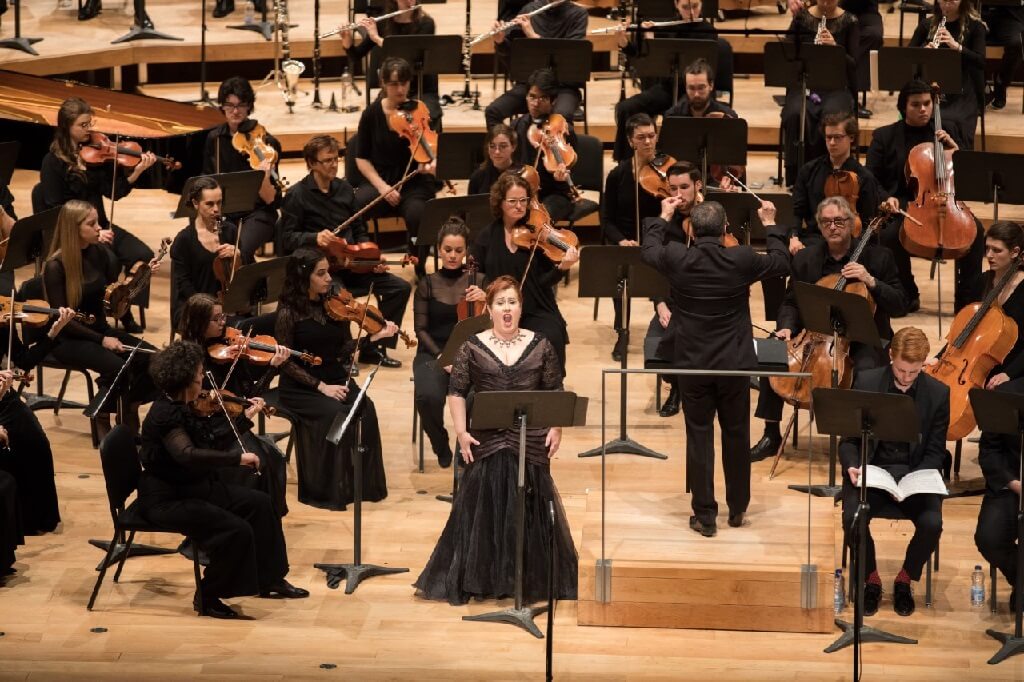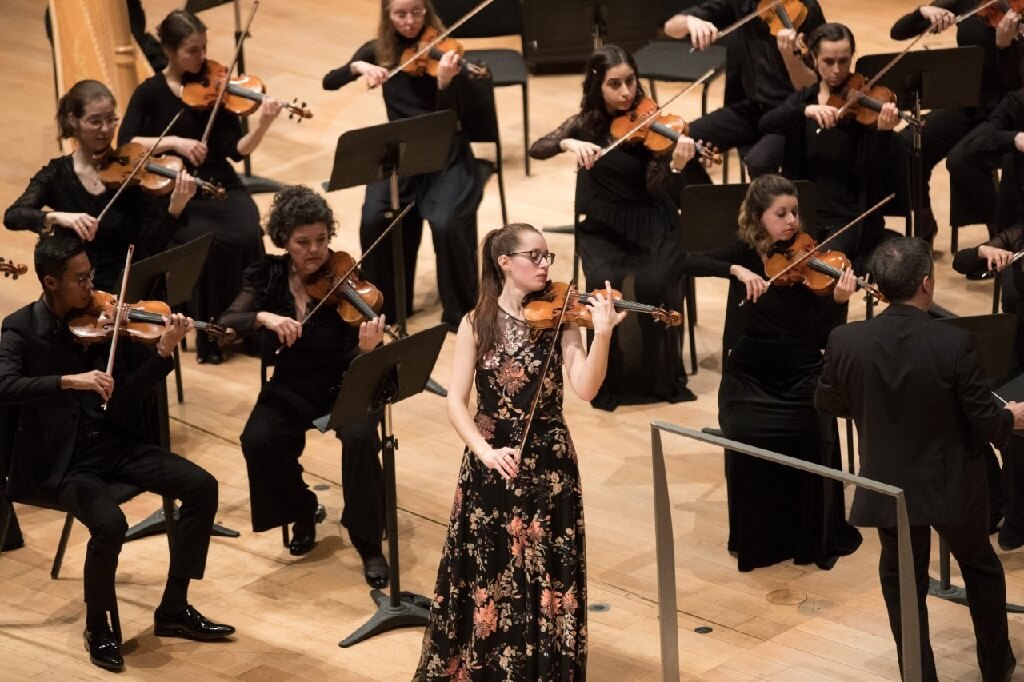
Montreal, city of orchestras. We hear about the professional ensembles but must not forget the schools that supply them, including the Conservatoire de musique de Montréal, which on Wednesday night assembled 100 instrumentalists and 350 choristers in the Maison symphonique for a concert intended to extend the celebration last year of the 75th anniversary of the institution.
The conductor was a total pro, Jacques Lacombe, one of the eminent products of the Conservatoire network, but also a good choice on his own terms for a work as ambitious, sprawling and kaleidoscopic as Benjamin Britten’s War Requiem. Interludes of brassy grandeur interact with bare-bones recitative in this anti-war polemic; fugues do battle with stalwart unisons. Much of the message (communicated substantially though the poetry of Wilfred Owen) is couched in irony, some of it subtle, some of it overt.
It is a tall order, technically and otherwise, and Lacombe, with his athletic, rapier beat and complete control of particulars, kept the disparate elements in just proportion. Antiphonal fanfares were robust rather than coarse and lower strings spoke lucidly in quiet passages meant to communicate uneasy calm.
The youngsters of the Choeur Junior de l’École Joseph-François-Perrault, perched high in the organ loft, projected no less boldly (courtesy of conductor Pascal Côté) than their elders in Conservatoire choir (combining students from Montreal and Trois-Rivières and prepared by Raymond Perrin). To use the mighty Grand Orgue Pierre-Béique rather than a harmonium in the Offertorium was an interesting choice. For a moment I wondered whether a real alarm had been set off rather than a musical evocation of an emergency siren.
Soloists were well chosen. Bass-baritone Alexandre Sylvestre brought melodious shape and tender feeling to the exposed writing (“I am the enemy you killed, my friend”) that leads to the slightly-hopeful conclusion of the work. He faced stiff competition from the chamber orchestra (Britten deploys two orchestras) during the “Be slowly lifted up” passage of the Dies Irae. Isaiah Bell, a clear tenor with perfect diction, could always be heard.
Aline Kutan, singing Latin words only, effectively alternated dramatic and lyric tone while commanding a wide tessitura. As resolute as she sounded singing “Rex tremendae” in the early going, there was some loss of force in the Libera me. In any case, this veteran soprano understood the message of the music.
Lacombe did his best work at dynamic extremes. The “Sed signifer sanctus Michael” chorus came off as a punchy scherzo and the ethereal descents to an F Major triad were finely contoured. I had trouble with a few in-between sections and wondered whether my foot should have been tapping as much as it did. Was Lacombe pushing the beat too insistently? Or was I experiencing the disorientation I often feel in the face of Britten’s wide-ranging, hard-to-pinpoint style?

It should be mentioned that the strings were fortified by members of I Musici de Montréal, one of whom served as concertmaster of the larger orchestra. If there were any other ringers, I did not notice.
The evening began with Jacques Hétu’s Sur les rives du Saint-Maurice, a travelogue of 2008 that gave the brass quite the warmup. There was much bold writing in cinematic style, but I liked best the birdsong that sounded suspiciously like warriors reproducing birdsong in the woods.
Also heard before the break was the first movement of Erich Wolfgang Korngold’s 1947 Violin Concerto, which has gained popularity in the 21st century. Abby Walsh played it in a fearlessly romantic style. One had the impression of a performer applying herself intently to the phrase at hand rather than rushing toward the next one.
- SCRUTINY | Azrieli gala a popular success - 22 octobre 2022
- COMMENTARY | Why Playing Political Hot Potato With Artists Is A Terrible Idea - 23 mars 2022
- REVIEW |Tenor Spyres flies high at Lanaudière despite the downpour - 14 juillet 2019



